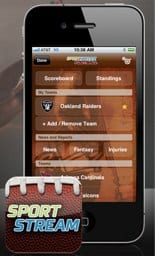 Might as well admit it — you are drowning in a sea of information, a tidal wave of tweets and status updates, a pipeline gone Banzai with breaking news feeds and posts that would wipe out even the Laird Hamiltons of surfdom.
Might as well admit it — you are drowning in a sea of information, a tidal wave of tweets and status updates, a pipeline gone Banzai with breaking news feeds and posts that would wipe out even the Laird Hamiltons of surfdom.
What’s more, if you’re like most humans, you’re also running out of time to find the content that interests you as you ration your life among competing Web tasks, Web sites, social exchanges and media plays. Yes, there are search engines. But are search engines the only way to find and filter the content you want to reach?
Seattle’s Evri has set out to calm the raging surf by channeling it into personal reservoirs of knowledge on virtually every, or “evri” topic. That’s the kicker: you create your own Evri channels not by media outlet or source but by Topic.
In the very near future, Evri’s cadre of usability pros, programmers and scientists will break out a new tablet app to let users build their own news experience. Using Evri’s breakthrough content filtering technology, favorite topics will be automatically indexed from a sweeping range of the Web’s best sources. But Evri then goes further by advancing content recommendations and suggesting related topics for “evri” article in “evri” topic.
As Evri CEO Will Hunsinger explains the pioneering concept from Pioneer Square: “Evri pioneered personalization of the news experience by allowing a user to follow specific topics rather than individual sources. while others have attempted to replicate the concept, none can deliver on the promise because they lack the technological platform that makes Evri topical streams relevant and timely, with a depth and breadth unmatched by simpler aggregators and RSS readers.” We turned the telescope around to make today’s topic “Evri” and asked the CEO (who was hand picked by Paul Allen to run the show) to give us the download on Evri-thing.
Seattle24x7: The Web has evolved to a point where following friends and colleagues is a lot easier than gathering news and information. Why has filtering information been so hard?
Hunsinger: There is simply too much information to curate. First and foremost, Evri uses semantic technology to distill information from thousands of different sources into millions of topics and present it in a very appealing way. Essentially, our algorithm uses Natural Language Processing to take unstructured data and find the structure in it. It reads every word and every sentence, and understands what it’s about and how it relates to what you are most interested in.
This is a much different context than an individual who is curating a dozen sources or even a hundred sources. We also understand that it’s not just any content that people are interested in. Evri is able to factor in the popularity of the content, its freshness and the velocity with which it is trending. We can distill this content down to a person like Ted Williams, or to a broader topic like Baseball.
Seattle24x7: Liking the sports analogy. You guys have already scored with a number of sports-related apps? 
 Hunsinger: We specialize in topic-based content experiences. So, yeah, we have a number of apps in the mobile marketplace right now. We have a baseball app, EvriThing Baseball, a football app, SportsStream Football, and we also have a Technology News app, EvriThing Tech, and a Celebrity Gossip app, EvriThing Gossip. We have a special relationship with Samsung that produced a b-ball app. EvriThing Basketball.
Hunsinger: We specialize in topic-based content experiences. So, yeah, we have a number of apps in the mobile marketplace right now. We have a baseball app, EvriThing Baseball, a football app, SportsStream Football, and we also have a Technology News app, EvriThing Tech, and a Celebrity Gossip app, EvriThing Gossip. We have a special relationship with Samsung that produced a b-ball app. EvriThing Basketball.
Seattle24x7: Given the speed at which data moves across the Net, how is Evri able to determine what information is not just relevant but is also popular in the moment?
Hunsinger: There are a number of signals that we use to distill a particular topic down to its popularity ranking and determine whether its going to surface or not. To begin with we know which publications are the most trafficked and which pieces have the most page views, so for starters, there are sources of content that are pre-ranked for their credibility, just like a search engine. But we can also differentiate credibility and relevancy within a content domain.
For example, take a source like TMZ. An article on entertainment or celebrity gossip that originates from TMZ, has a high credibility ranking, believe it or not. Whereas an article about politics from TMZ would have a lower credibility rating. Twitter is similar. So, for instance, we can poll Twitter’s Site Stream (Evri is partnered with Twitter’s limited beta program) for meta data around a particular link and look at what source did the link come from? Is it verified? What is its retweet count?
Ultimately,what the consumer cares about is the quality of the content. They don’t need to know that it’s the “extraction and disambiguation of certain entities.” They just need to know that their content is just better. My Boston Red Sox news is just better. I don’t have to go to ten different sources or wade through the Yankees coverage to get my Boston Red Sox. Only we know that our back end is cool, that our semantics make it happen.
Seattle24x7: So, in this case, the content is not a factor of a “Like” or a “+1” vote, or what your friends are watching or liking?
Will Hunsinger: We focus on “explicit personalization,” meaning, when you find a particular topic that you’re interested in, we allow you to follow that topic. Whether you say this is my favorite sports team, or I want to follow the ongoing budget debate or drama, etc., we will deliver that content to you until you unfollow it. We also allow you to “broadcast” what you follow so you can post something like ‘I just created a Georgetown Hoyas’ stream.’ Or ‘I just created a Boston Red Sox’ stream.’ And your friends or other users you decide can click to it, and they can actually follow what you’re following. Notice I said what you are following, not who you are following.
So we, we essentially start to connect the Social Graph with the Interest Graph. What we DON’T do is say, oh, you just read five articles about the Yankees. So, we’re gonna give you more Yankees stuff. Or we don’t see that you have a whole bunch of friends in Facebook who are posting Yankees articles and assume you must like the Yankees, because your friends like the Yankees. We look at it very differently.
Seattle24x7: It sounds like you are questioning the Facebook credo of whether the Social Graph is an accurate predictor of others’ interests?
Will Hunsinger: In the beginning, social was a fantastic filter. And now, well, look at the number of people who are sources that you follow. How easy is it to amplify that content to your circle of friends? Have you ever followed someone on Twitter because they sent you an article that you really liked, and then you never see anything like it in their tweets again?
Seattle24x7: One of the arguments made in the recent bestseller The Filter Bubble: What the Internet Is Hiding From You, is that people are only seeing the content they want to see, like looking in the mirror, and a particular slant or bias can enter in. Like two political groups, each reading their own dogma. How do you contend with that?
Will Hunsinger: We think that’s the beauty of a topic based approach. In our system, we distill a topic down very generally. It could be politics, right down to the Republican National Committee. But, if someone chooses to explicitly follow the Republican National Committee, we are going to deliver the most relevant information about the RNC. Regardless of whether it is coming from Atlantic magazine, or the Washington Post. In other words, if our NLP tells us that this article is the most topical for the Republican National Committee, it will be included even if it’s written from the perspective of the Democratic National Committee. We’re not saying if you always read the Atlantic, we’re not going to show you the Washington Post anymore. There are adjustments you can make to your channel but nothing is going to be excluded and “discovery” is very much alive. In the final analysis, topics are non-behavioral. The only behavior we care about is that you explicitly say ‘I want this. I want less of this, I want more of that.’ Great, rock on. And then, off we go.
 Seattle24x7: You mentioned Samsung. I imagine your business model is advertising or sponsor based?
Seattle24x7: You mentioned Samsung. I imagine your business model is advertising or sponsor based?
Will Hunsinger: We have begun to test advertising on our mobile devices. So if you have our Evrithing Baseball app, you may see some simple display advertising. We have a couple of deals in place with third party ad networks to monetize our mobile apps. We also see an opportunity, given our approach for contextual recommendations, that could speak to immediate transactions. So, you’re exploring the Boston Red Sox stream of content there may be an opportunity for you to buy tickets. Or you’re in the Los Angeles Lakers content stream, and the location of your device is in Los Angeles and there’s a game tonight, we could offer you tickets to the event, or to the Kobe Bryant bobblehead app from the App Store. There are a lot of different contextual recommendations we feel like we can be making.
Will Hunsinger: There are a number of very large organizations, the size of the New York Times, who have said to us is, we know we need to work with guys like you. We just don’t understand how we need to work with you yet. In our case, the content is consumed on the publisher’s site. Whether that be via a mobile browser or on the Web. If you look at our site, when you click off to an article, you go to that publisher’s website. In some cases, we frame the content. Every publisher has the opportunity to kill a frame on a referring URL. The New York Times does it to us. And they do it to everybody else.
Seattle24x7: What Evri has developed is ultimately a kind of content-rich browser experience. You can literally explore everything online from within the platform. Will Hunsinger: You’ve got it. In the past, when I’ve talked to people about a content driven, semantic browsing experience that allows you to pivot on the temporal relationships between people, places and things, well, they look at me like I have a third eye. But essentially, that’s what we’re talking about. [24×7]
Visit Evri at http://www.evri.com




















